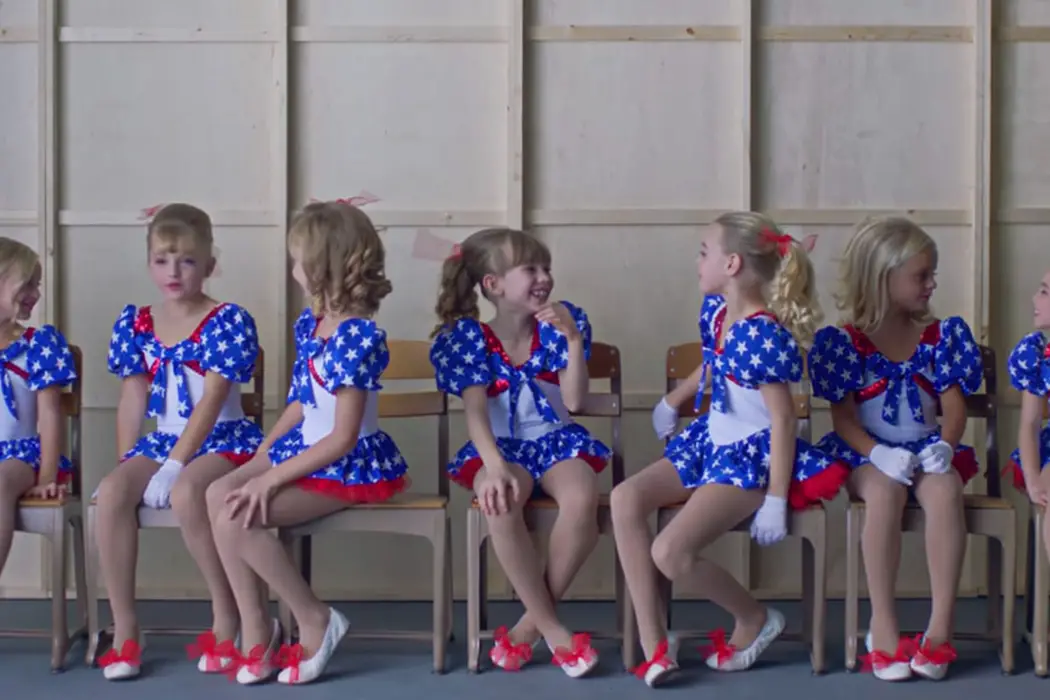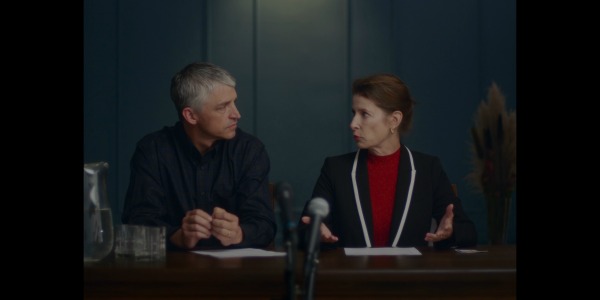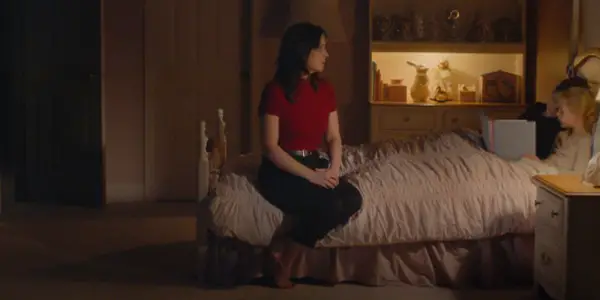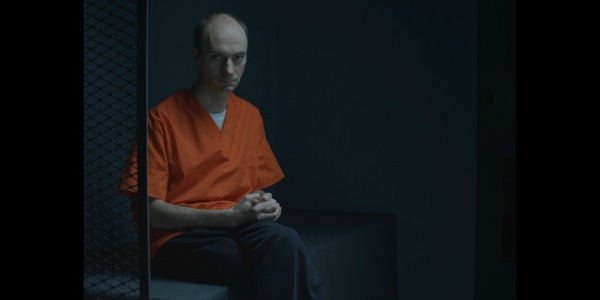CASTING JONBENET: Memory As Context

Arlin is an all-around film person in Oakland, CA. He…
America is a serial memorializer. As a young country with a relatively short history, we have an innate need to process tragedy collectively so as to canonize it as part of our national narrative, most often through media representations. The time it takes for this to happen tends to vary on a variety of factors, but seems in recent years to be shrinking. It was 5 years after 9/11 that we saw United 93 and World Trade Center, but only three years after the Boston Marathon bombing for Patriot’s Day.
That time goes down even more if it’s a story seen as a national triumph in need of swift historicizing, as in the example of Zero Dark Thirty. Released just over a year following the killing of Osama Bin Laden, the process of conceiving the film must have begun in the days after the event itself, lest the narrative be solidified in the collective consciousness in some other fashion that might call into question the story that torture led the successful mission.
The exception to this rule is when an event causes us pain or embarrassment, to the point that it makes us question who we are as people. Like the OJ Simpson case, which saw renewed interest last year with an all-star TV mini-series and multi-part documentary event, the horrific murder case of JonBenét Ramsey has also crept back into the zeitgeist, with an A&E investigative documentary series and a network dramatized miniseries. As the case remains unsolved and, though discussed exhaustively in the media by anchors and commentators, undramatized, there are still a lot of lingering narratives and feelings about what happened 20 years ago in Boulder, Colorado.
Enter Kitty Green, whose film Casting JonBenet seeks to create a new kind of media representation; one that combines both documentary and reenactment, while acknowledging the constructed artificiality of both. Green brilliantly gives us a film that offers the opportunity to collectively process this painful event without attempting to cement the narrative, recognizing that purporting to present any sort of definitive account of the infamous case is a fool’s errand.
Microcosmic Interviews
The title of the film, Casting JonBenet, is a bit of a misnomer, as we only very briefly meet the girls up for the title role. But like Laura Palmer in Twin Peaks, JonBenét is omnipresent in every scene in the film, defined primarily by her absence. Borrowing a couple of techniques from noted narrative-muddier Errol Morris, Green employs an interrotron to audition the hopefuls for a host of other roles, from the police chief to Santa Claus, and intersperses these interviews with scripted reenactments featuring those we just met. As is its function, the interrotron forces you to stare right into the eyes of the subject, creating a kind of intimacy that’s unique for film, an inherently distant medium. In compiling their impressions and recollections of the case, an overall picture begins to form not only of the processing of this specific tragedy, but of the processing of the processing itself.

Casting JonBenet features no expert talking heads or news clips, but rather relies of the actors’ testimonies, who are all local to the Boulder, CO region, to provide all the context the film will offer. One hopeful Patsy Ramsey qualifies the statement she’s about to make with “from what I heard and sort of put together…”, which can be accurately applied to pretty much any statement made by anyone in Casting JonBenet. No one actually knows for certain anything about the case, it’s all being reported 2nd, 3rd, even 4th hand, over two decades removed from the event.
These interviewees represent not only themselves or Boulder, but all of us who got caught up in a national trauma and never got any closure. All we have to go on is speculation diluted by time, which is often wildly outlandish and a little hilarious but is mostly just depressing; another prospective Patsy, in offering her rationale for why she believes that her character committed the murder, says “she turned 40 and [Jon Benét] wet the bed”. Here we see the manifestation of the rampant salacious interest that TV executives felt warranted a new series.
The interviews become a springboard from which to explore all manner of human thought and experience. From sexuality to economics, gender roles to histories of abuse, we bear witness to a multitude of perpectives from which folks form their ideas about an event held in the public consciousness.

Two themes kept reappearing. One is the practicing of America’s favorite past time: judging parents. The glee with which some place themselves about those of whose child-rearing they disapprove is, while somewhat understandable, a bad look at best and moderately disgusting at worst. The lack of self-awareness employed while spitting this societally condoned vitriol demonstrates that these opinions are less about the Ramseys themselves, and more about a community eager to say “well at least I’m not like them“.
The other theme is the remarkable commonality of trauma among the auditioners, many of whom are forming their opinions from a perspective rooted in their own traumatic episodes. Separate from the case itself, this alone makes Casting JonBenet worth seeing, as it could be de-isolating for those who worry their experiences are unique and thus not understandable. There’s freedom in recognition. Often these folks are more tempered in their remarks, seemingly in contrast to how personally they might have felt about JonBenét‘s story. Empathy is a much better look than condemnation. One of the frequent talking points of the Ramsey case was how Boulder is a quiet community without a history of crime or tragedy. The experiences of this group of aspiring actors from the same community shows that that has never been true, and certainly wasn’t the case in 1996.
Truth in Art
A bottle drama that largely takes place in the mind of the viewer, Casting JonBenet in some ways seems like something you’d be more likely to find as a museum installation than on the world’s most popular streaming platform. The film has a non-narrative format, patience-testing repetition, and formal choices that reflect and support the content, such as the auditions being shot in 4:3, perhaps as a subconscious signifier of our ’90s TV sets.

The juxtaposition of the real actors and their heartfelt interviews with their scripted performances, which are shot in widescreen to reinforce their artificiality, acutely highlight the absurdity of the entire enterprise of making a conventional drama about such tragic circumstances. It culminates in a virtuoso sequence where all of the Patsies and Jons act out different scenes on the same set simultaneously. The scene is a whirlwind of grief which, in the context of the events it’s meant to represent, is that of a mourning family, but in the context of Casting JonBenet can be viewed as being for all of the rhetoric that came before, the trauma of comprehension. More definitively, it underscores the film’s poly-perspective and themes of uncertainty and truth, which is the only true certainty. In a sense this is the anti-The People Vs. OJ Simpson.
That said, Casting JonBenet is entertaining throughout, featuring a hauntingly ethereal score over thoughtfully composed cinematography, with plenty of moments of levity to make the thematic medicine go down easier (the line “if you tell someone a secret it is no longer a secret” is destined to join the ranks of American Movie‘s “it’s alright, it’s ok, there’s something to live for, Jesus told me so” as a documentary classic). But it is to be expected that a film whose subject is the murder of a little girl will leave people feeling shaken; it’s a tribute to Green‘s talents as a filmmaker that she was able to deliver one that’s also so enjoyable.
What are your thoughts on Casting JonBenet?
Casting JonBenet is released on Netflix on April 28, 2017.
Does content like this matter to you?
Become a Member and support film journalism. Unlock access to all of Film Inquiry`s great articles. Join a community of like-minded readers who are passionate about cinema - get access to our private members Network, give back to independent filmmakers, and more.
Arlin is an all-around film person in Oakland, CA. He received his BA in Film Studies in 2010, is a documentary distributor and filmmaker, and runs Drunken Film Fest Oakland. He rarely dreams, but the most frequent ones are the ones where it's finals and he hasn't been to class all semester. He hopes one day that the world recognizes the many values of the siesta system.












